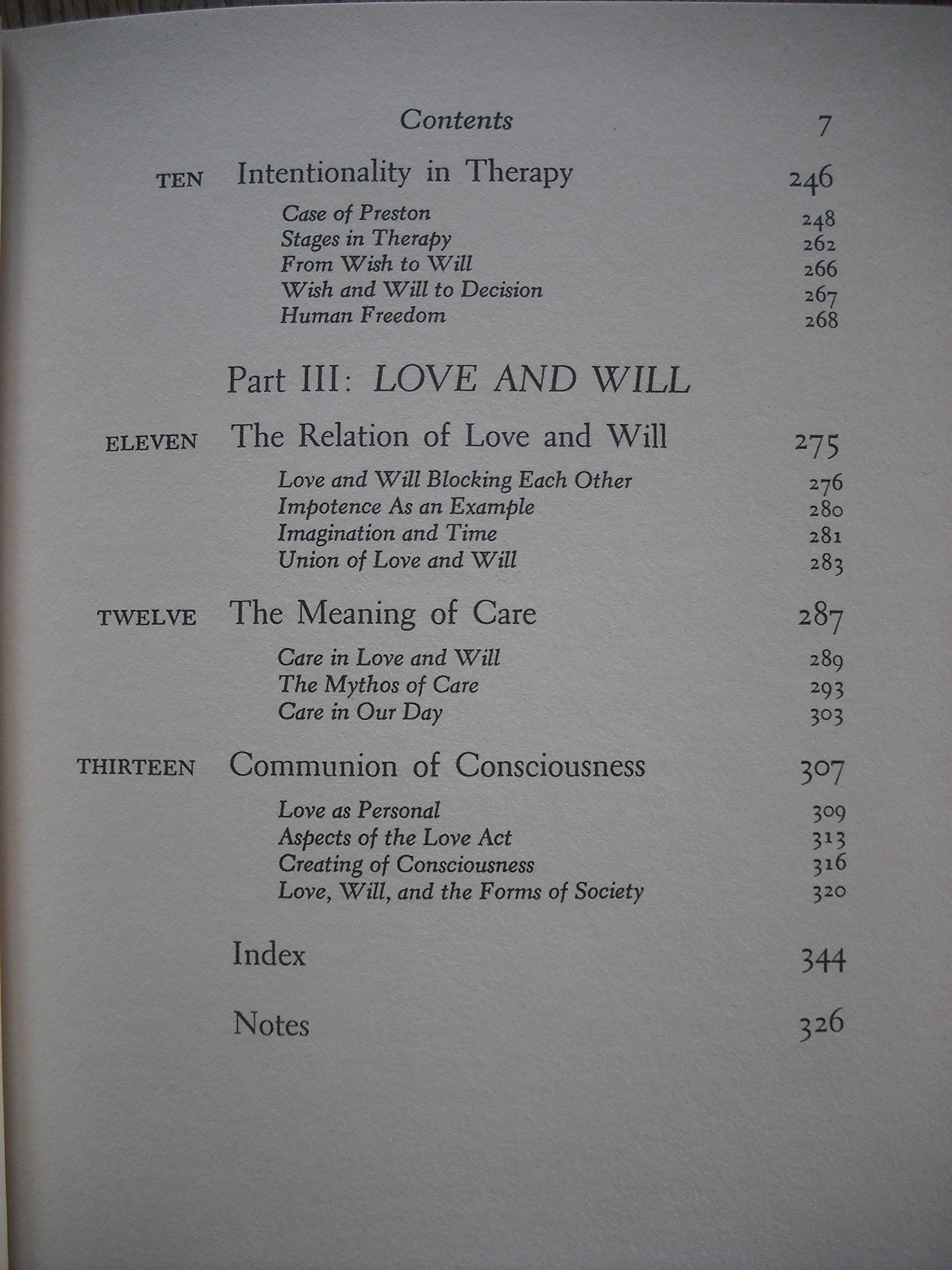





Love and Will
B**9
A MUST READ for living a conscious life
This is one of the best treatises you will ever encounter on the subject of what has gone wrong in "modern" day relationships. I enjoyed hearing Rollo May's coherent and sometimes amusing thoughts on mis-thinking that occurs in intimate relationships. This is a "must read" for anyone who values living a conscious life.
B**N
Great Existentialism and Psychology Classic.
This is a great classic work that anyone interested in Psychology, Existentialism, or psychotherapy should read. I think it should be required reading for all grad students in those areas. He brings up interesting concepts one doesn't hear about except by Carl Jung, such as the "demonic" creative side within us, and how we need to combine love and will to boldly express the fullness of all of our gifts and talents in the world.
C**O
Five Stars
Love the book. Delivery right on time.
E**N
Five Stars
Rollo is one of a kind, a true Renaissance man of psychology/philosophy/human experience.
C**S
Great read!
Everybody should read Rollo May
M**N
Five Stars
A classic worth possessing
T**.
Interesting
It strikes me as a bit "highbrow" and even a bit pretentious in parts (then again, I'm a layperson - not a psychologist), but May does give an interesting analysis of some of the potential social causes of feelings of disatisifaction and emptiness experienced by so many in the modern western world. Despite the highbrow tone taken in parts, May does seem like a nice down-to-earth man who believes more love and positive self-direction can remedy most of the psychological discontent we experience.
C**S
Eros transforms us
I read this book in graduate school in 1973 and then again 30 years later. When I was a young man I had not had enough experience with Eros to understand the book. I knew I wished to do great deeds but I did not know the source from which these thoughts emerged. Now, in the second reading, I recognize the forces of Eros in my past and present and recognize the need to integrate the daemonic or shadow to fully harness these forces.The central thesis of the book is that Eros, the life force, directs our Will toward our highest potential. Rollo May asserts that hate is not the opposite of love, apathy and disinterest is. The opposite of will is not indecision - but rather May sees it as detachment. May's central thesis is that Eros (Love) is the fundamental energy behind Will. Eros is the force that drives men to seek God. Eros is the spirit of life and is not to be confused with the sex drive. Rollo May points out that the sex drive seeks satisfaction and release of tension whereas Eros drives us outward. Much of the first half of the book carefully explains the similarities and differences between the sex drive and Eros, the life force. Primarily May sees sexuality as a drive reduction process, similar to the learning theorists Clark Hull and James B Watson. Eros, however, is the creator, forever reaching out, seeking to expand. As Paul Tillich says "A movement from the potential to the actual" and "vitality is the power of creating beyond oneself without losing oneself." Eros is the power from which we do not want release but rather to be prolonged, to form the world. Eros drives us to go beyond ourselves, to transcend ourselves, to reach ethical goodness, to seek truth and beauty. May connects his theories to St. Augustine, Freud, Maslow, Joseph Campbell, and Plato; all of whom belived that love is the fundamental human experience; pervades all our actions, and is the deepest motivating force. Freud further believed that all civilizations are created by the disciplining and re-direction of the forces of Eros. Rollo May, the therapist, points out that the task is not only to recognize our own power but to recognize the self aggrandizement that accompanies all human endeavor in this realm of power and love. May is similar to Jung in the concept of recognition of the shadow or daemonic as a guide to the self as well as a path toward integration and concentrated power and life force. Referring back to Harry Stack Sullivan, May points out that we can only love others to the extent that we can love ourselves. What is it like to be someone who has harnessed the power of Eros? May quotes Hegel: "Socrates, like all heroes who cause new worlds to rise and inescapably the old one to disintegrate was experienced as a threat; what he fought for is a new form which breaks through and undermines the exisiting world."I think the reader may find that the works of Joseph Campbell and Carl Jung further inform May's thesis. I strongly recommend the book to those who study mythology, philosophy, and psychology.
Trustpilot
1 week ago
5 days ago